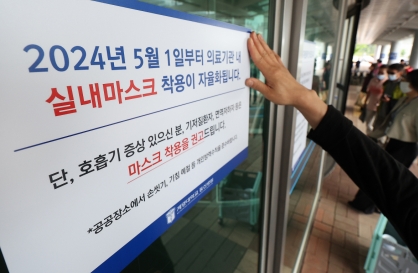'Ajumma' no more: Housekeepers given new job title, 'house managers'
By No Kyung-minPublished : Aug. 3, 2023 - 14:41

Housekeepers in Korea, commonly referred to as “ajumma” or “imo,” have acquired a new job title, "gasa gwallisa," meaning house manager.
The Ministry of Employment and Labor, officially announcing the new occupational title Wednesday, asked the general public to use it to refer to domestic workers -- those who provide services such as cleaning, washing, kitchen work and caring for members of a household -- from now on.
So far, domestic workers have often been addressed by informal names like "ajumma" and "imo" -- comparable to "ma'am" and "aunt" in English -- but such terms carry slight derogatory connotations and do not adequately recognize their dignity and professionalism, the ministry explained.
Traditionally, Koreans have tended to use job titles when referring to work colleagues.
The new title of house managers was selected through a survey of workers in the field.
Nearly 43 percent of the 10,623 domestic workers surveyed by the ministry-affiliated housework service support center preferred the title.
Informal terms used to call domestic workers here include “ajumma,” "ajumeoni” and “imo-nim.” Ajumma is a term used to call to a middle-aged woman, though it has a slightly derogatory connotation, while ajumeoni is a more respectful form of address.
Imo-nim is the honorific suffix "nim" added to the Korean word for one's mother's sister or "aunt."
One 63-year-old cleaning worker named Park expressed her discomfort with being called ajumma, as it feels demeaning. “Some people call me 'eomeonim,' but I prefer to be addressed as 'yeosanim,'" she explained to The Korea Herald.
“Eeomeonim" means mother, while "yeosanim" refers to a married woman of high social status, similar to "madam."
In June last year, domestic workers were granted official legal status as workers, entitling them to receive the minimum wage and four major social insurance schemes following the promulgation of the Act on the Employment Improvement of Domestic Workers.
The nation has seen an increase in the number of government-authorized institutions providing domestic work services, reaching almost 50.




![[Music in drama] Rekindle a love that slipped through your fingers](http://res.heraldm.com/phpwas/restmb_idxmake.php?idx=644&simg=/content/image/2024/05/01/20240501050484_0.jpg&u=20240501151646)

![[New faces of Assembly] Architect behind ‘audacious initiative’ believes in denuclearized North Korea](http://res.heraldm.com/phpwas/restmb_idxmake.php?idx=644&simg=/content/image/2024/05/01/20240501050627_0.jpg&u=20240502093000)



![[KH Explains] Will alternative trading platform shake up Korean stock market?](http://res.heraldm.com/phpwas/restmb_idxmake.php?idx=644&simg=/content/image/2024/05/01/20240501050557_0.jpg&u=20240501161906)








![[Today’s K-pop] Stray Kids go gold in US with ‘Maniac’](http://res.heraldm.com/phpwas/restmb_idxmake.php?idx=642&simg=/content/image/2024/05/02/20240502050771_0.jpg&u=)